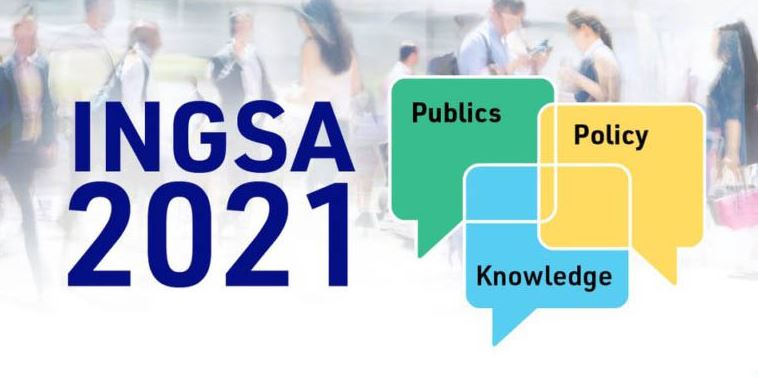In early September, the 2021 INGSA International Conference on Science Advice to Governments took place as a hybrid meeting.
The conference with the theme “INGSA2021: Build Back Wiser: Knowledge, Policy and Publics in Dialogue” focused on improving our understanding of the changing nature and contexts of work at the interface between science and public policy, and saw a number of contributions from GYA members and alumni.
For example, current co-lead of the GYA Science Advice working group, Alma Cristal Hernández-Mondragón (Mexico) contributed a virtual poster together with other Mexican colleagues in order to communicate the training programme on Science-Policy Interface (SPI) launched in 2019 in México City’s Government that she designed and coordinated. The programme consisted of placing early-career scientists in several ministries of the local government, where they can provide scientific evidence to officials for policy and decision-making . This programme represented the first effort of its kind in Latin America. As such, it also provided adequate training for the first cohort. Programme results for the ministries were highly positive and as a practical result, the fellows are able to interpret scientific literature to answer specific questions, creating hard evidence like policy briefs, technical opinions, guidelines for speeches, and so on. Finally, as an evolution of the work on SPI and with the understanding that Politics needs Science and Science needs Politics and to strengthen tools to communicate with scientists with policy makers, several members of the first cohort created an NGO: the Mexican Association for the Advancement of Science (AMEXAC). AMEXAC will contribute to build capacities, amplify efforts on science-policy interface and provide new career options for young scientists.
The former co-lead of the GYA working group on Science Advice, Binyam Sisay Mendisu (Ethiopia) took part in a panel session on “Science Advice Experiences from Next Generation Research Groups”. He talked about his experience of being involved in science advice capacity development for national and regional early-career networks, and his involvement in the GYA. His talk was titled ‘Developing Science Advice Capacity in Next Generation Research for Ensuring Trust and Sustainability’, and he made the point that one of the factors that determine the quality of evidence for policy making is diversity of its sources, and one of the major groups that bring fresh insights is early-career researchers. He argued that this has implications to ensure much needed trust in public policy making and sustainability.
Binyam was also elected as new INGSA Vice President for Capacity Building; with Professor Rémi Quirion (Canada) elected as INGSA President, and Soledad Quiroz-Valenzuela from Chile becoming VP for Policy, and Claire Craig (UK) VP for Evidence.
